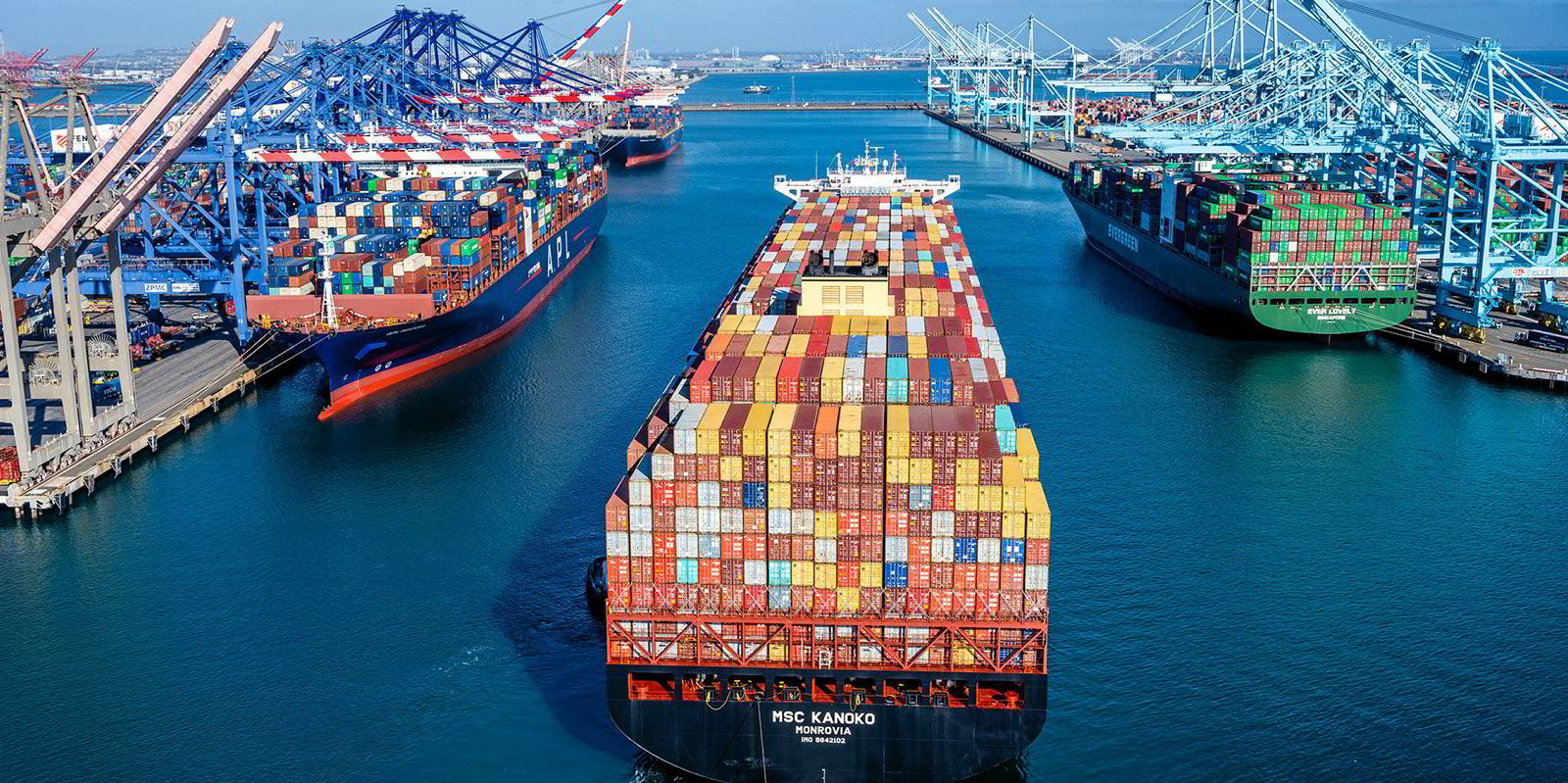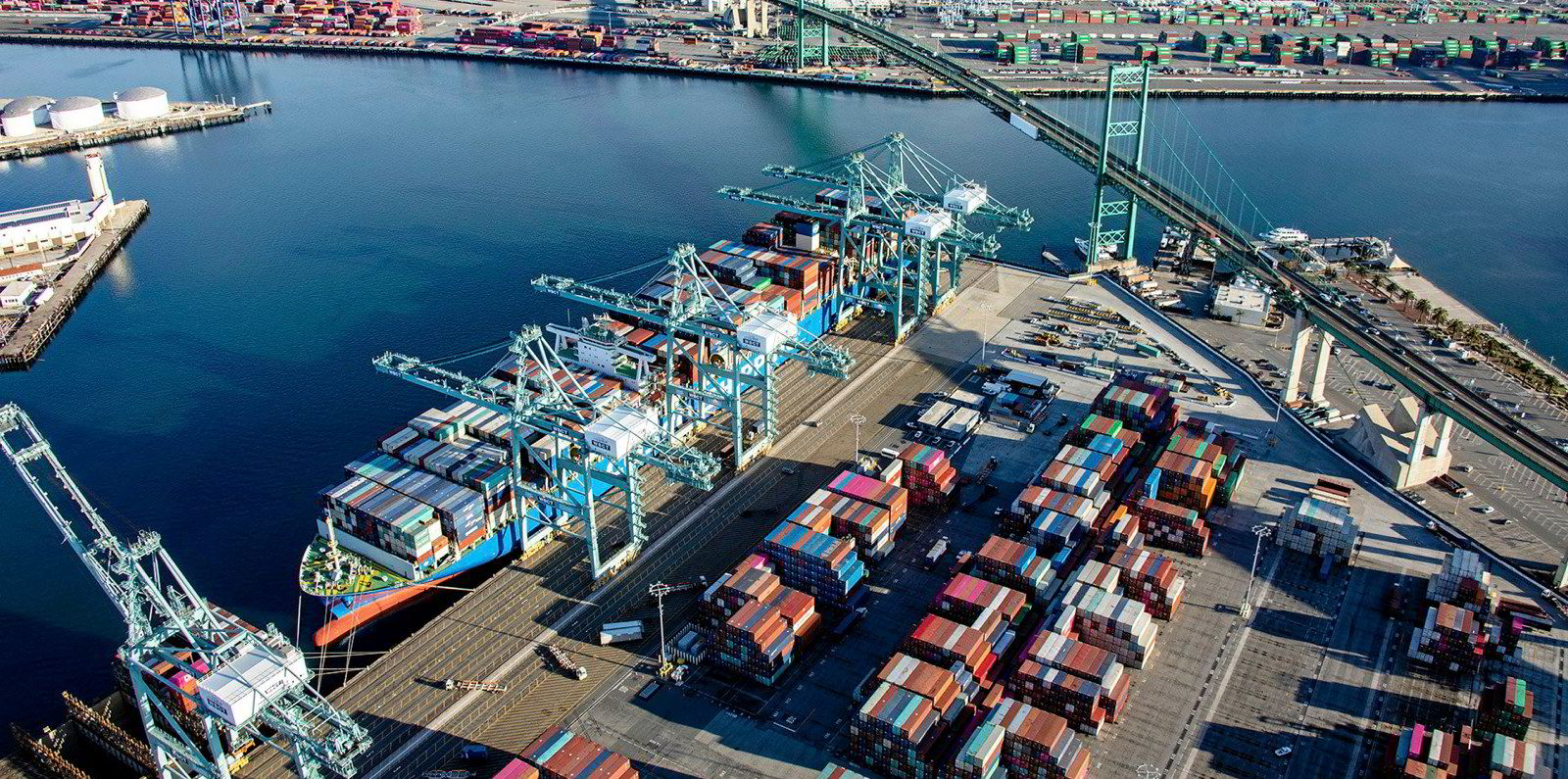Five California ports — the ports of Los Angeles, Long Beach, Oakland, Hueneme and San Diego — plan to share information on vessel cargoes in an effort to improve supply-chain efficiency on the west coast of the US.
They all signed a memorandum of understanding on Thursday to launch the California Port Data Partnership with $27m in grant money from the state Governor’s Office of Business and Economic Development (GO-Biz).
The five ports and state officials have met every two weeks for months to develop the MOU, which is focused on developing a port data system that will aggregate and analyse computerised and cloud-based cargo data.
“The MOU is a first-of-its-kind agreement on data system development among containerised ports and outlines eleven areas of cooperation, ranging from developing data definitions to ensuring equitable access to data for users,” GO-Biz director Dee Dee Myers said in a statement.
The five ports shared cargo data while dealing with unprecedented supply-chain disruption during the pandemic, but the partnership will allow them to analyse all that data at the same time, Port of Los Angeles executive director Gene Seroka said.
“Analytics from that data allows us to see around corners, which is not just a competitive advantage, it’s now a public necessity,” he said in a statement.
The data partnership will reduce delays and help the shipping industry move cargo quickly onto the docks so that trucks and trains can pick them up for inland shipment, said Port of Long Beach executive director Mario Cordero.
“By working together, California’s ports can enable end-to-end visibility and connectivity across the supply chain.”
During the pandemic, container ships backed up in the ports for as long as the eye could see while waiting for open berths because the docks became overwhelmed with boxes due to consumer demand and China’s factories catching up on back orders.
The Federal Maritime Commission (FMC) has proposed a nationwide Maritime Transportation Data System, but it is unclear as to whether California and the FMC plan to coordinate efforts on creating data transparency.
Calls to California state officials and the FMC were not immediately returned.




